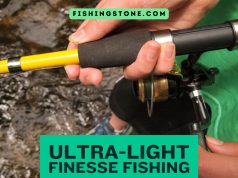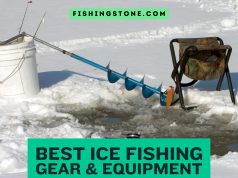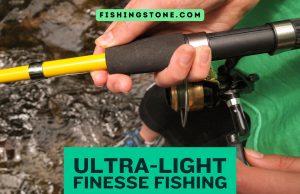Owning a house boat offers a life full of adventure and freedom. It’s a way to live on the water, with everything you need right outside your door. This guide will cover how to get started, what to consider, and the benefits of life on the water. Whether you’re new or thinking of upgrading, learn how owning a house boat can change your daily routine.
Owning a House Boat: Your Comprehensive Guide to Life on the Water
The allure of the water, the gentle sway of a home, and the ever-changing view outside your window – it’s no wonder that owning a houseboat has captivated the imaginations of many. Far from a mere novelty, houseboat living offers a unique blend of freedom, community, and connection to nature that traditional land-based homes simply can’t match.
But what does it truly take to live the dream? From the initial investment to the daily realities, this comprehensive guide will navigate the waters of houseboat ownership, helping you decide if this aquatic lifestyle is the right fit for you.
DISCLOSURE: Some of the links on this page are affiliate links, meaning, that at no additional cost to you, I may earn a commission if you click through and make a purchase. Affiliate commissions help fund this Fishing website, our rare fishing trips and my extreme coffee addiction.
Navigating the Market Towards Owning a Houseboat
How To Buy A Houseboat: 3 TIPS For BUYING Process Video.The journey to owning a houseboat often begins with the purchase. The market for houseboats is diverse, ranging from converted barges to purpose-built floating homes.
When buying a houseboat, consider your needs: Do you want something primarily for stationary living, or a vessel capable of cruising?
- New vs. Used: New houseboats offer modern amenities and warranties but come at a premium. Used houseboats can be more affordable but may require immediate repairs or upgrades.
- Types of Houseboats: They vary greatly in design, from pontoon-style boats with cabins to more robust displacement hulls or even stationary “floating homes” that are essentially houses on a raft, designed for permanent mooring.
- Location, Location, Location: Your intended living area will dictate the availability and cost of both houseboats and suitable marinas. Research marina fees, amenities, and waiting lists well in advance.
- Surveys and Inspections: Never buy a houseboat without a professional marine survey and engine inspection. This is critical to uncover hidden issues that could lead to costly repairs down the line.
- Financing: Most traditional lenders do not offer mortgages for houseboats. You’ll likely need to seek out specialized marine lenders or consider personal loans, or cash purchases.
The Dream and the Reality: Pros and Cons of Owning a House boat
What Are the Boat House Pros and Cons Video.Like any significant lifestyle choice, houseboat living comes with its distinct advantages and disadvantages. Understanding these “pros and cons of a houseboat” is crucial before diving in.
Pros of Owning a House boat:
Beautiful Small Floating Home – Tour & Pros/Cons for Full Time Living Video.- Unique Lifestyle: Experience unparalleled tranquility, wake up to stunning sunrises over the water, and enjoy immediate access to boating, fishing, and swimming. It’s a permanent vacation for many.
- Mobility (Limited): While not truly nomadic, a houseboat offers the ability to relocate, whether to a new marina, a different section of a lake, or even a new waterway, depending on its design and your intentions.
- Sense of Community: Many marinas foster tight-knit communities, where neighbors look out for each other and shared experiences create lasting bonds.
- Potential Cost Savings (Situational): In some areas, the initial cost of buying a houseboat and the ongoing expenses can be significantly less than purchasing a comparable land-based home, especially in prime waterfront locations.
- Ever-Changing Scenery: Your views are never static, offering a dynamic and beautiful backdrop to your daily life.
Cons of Owning a House boat:
6 Things We HATE About Living on a Boat Video.- Maintenance Demands: Boats require more constant and specialized maintenance than houses. Issues like hull integrity, marine systems, propulsion, and anti-fouling are ongoing concerns.
- Spatial Constraints: Houseboats, by nature, have limited living and storage space. Downsizing is often a necessity.
- Weather Dependency: Living on the water means direct exposure to elements. Storms, high winds, and extreme temperatures can be more impactful.
- Waste Management: Managing freshwater intake and sewage disposal (pump-outs) is a regular chore.
- Legalities and Mooring: Finding a suitable, legal, and affordable place to moor your houseboat can be challenging, with varying regulations, zoning laws, and scarcity of slips.
- Financing Challenges: Obtaining a mortgage for a houseboat can be more difficult than for a traditional home due to their classification as vessels.
Can You Build Your Own Houseboat? The DIY Dream
Homemade floating cabin built to live full time on the water Video.For the truly adventurous and handy, the question, “can you build your own houseboat?” often arises. The answer is yes, but it’s a significant undertaking.
Building your own houseboat offers the ultimate customization, allowing you to design a home perfectly suited to your needs and aesthetic. However, it requires a substantial investment of time, money, and skill. You’ll need:
- Extensive Knowledge: Understanding of marine architecture, carpentry, plumbing, electrical systems, and boat-building techniques is essential.
- Workshop Space: A large, suitable space (often outdoors or a very large shed) is needed for construction.
- Materials and Tools: Quality marine-grade materials are expensive, and specialized tools will be required.
- Time Commitment: This is not a weekend project. Building a houseboat can take months, or even years, depending on the complexity of the design and your available time.
- Regulatory Compliance: You’ll need to understand and comply with local, state, and possibly federal regulations regarding vessel construction, safety standards, and environmental impact.
While building your own can be incredibly rewarding, it’s generally more cost-effective and practical for most people to purchase an existing vessel, unless you have professional construction skills and a passion for the process.
In the event that you still want to make your own house boat you can find DIY House Boat Construction Plans and Books on Amazon here.
How Much Does it Cost a Year to Live in a Houseboat? The Financial Realities
How Much Does It Cost to Live on a Houseboat Video.Beyond the purchase price, understanding “how much does it cost a year to live in a houseboat” is vital for budgeting. These ongoing expenses are similar to traditional homeownership but with a marine twist:
- Mooring Fees: This is often the largest recurring expense, equivalent to rent or property taxes. Marina fees vary widely based on location, amenities, and boat size, ranging from a few hundred to over a thousand dollars per month.
- Insurance: Marine insurance is mandatory and typically more expensive than homeowner’s insurance due to the higher risks involved.
- Maintenance and Repairs: This is where estimates can vary wildly. Budget for routine maintenance like hull cleaning, anti-fouling paint (every 1-3 years), engine servicing, and checks on all marine systems. Unexpected repairs for plumbing, electrical, or structural issues can be significant. Many experts suggest budgeting 10-15% of the boat’s value annually for maintenance.
- Utilities: Even at a marina, you’ll pay for electricity, fresh water, and potentially internet/cable. Sewage pump-out services are often an additional fee.
- Fuel: If your houseboat is mobile, fuel costs can add up quickly, especially for larger engines.
- Winterization/Haul-out (Seasonal): In colder climates, houseboats often need to be “winterized” or even hauled out of the water to prevent ice damage, adding to seasonal costs.
Is a Houseboat a Good Investment? Assessing the Value

The question, “is a houseboat a good investment?”, requires a nuanced answer. From a purely financial standpoint, houseboats typically do not appreciate in value like traditional real estate.
- Depreciation: Like most vehicles, boats generally depreciate over time, especially as systems wear out and styles become outdated.
- Market Volatility: The market for houseboats is smaller and more specialized than the housing market, which can make resale more challenging.
- Limited Appreciation: While a houseboat in a highly sought-after marina with transferable slip rights might hold its value better or even appreciate slightly in rare cases, this is not the norm. Any appreciation is usually tied to the desirability of the slip, not necessarily the vessel itself.
However, if you view it as a lifestyle investment, the answer changes entirely. The value derived from the unique living experience, the connection to nature, and the sense of community can be immeasurable. It’s often about investing in a lifestyle, not necessarily a financial asset that will grow significantly.
Are Houseboats Worth It? Lifestyle vs. Ledger
Ultimately, Are Houseboats Worth It? This is a deeply personal question. If your primary goal is financial appreciation, a houseboat is likely not the best route. However, if you crave a distinct way of life, connection to the water, and a vibrant community, then the answer is often a resounding yes.
The value of houseboat living extends beyond monetary gains. It’s about simplifying, embracing a smaller footprint, and finding peace in the ebb and flow of the tides. It’s about the freedom to move (even if occasionally), the unique social scene, and the profound peace that comes from being surrounded by water. For many, the joy and unique experiences outweigh the complexities and ongoing expenses.
Owning a houseboat is not for everyone. It requires adaptability, a willingness to engage in maintenance, and a realistic understanding of the financial and practical aspects. However, for those who yearn for a life less ordinary, who dream of waking to the sound of lapping waves, and who embrace a unique community on the water, the rewards can be profound. It’s a commitment to a lifestyle defined by freedom, beauty, and a perpetual connection to the natural world – a true testament to the notion that home is where you drop anchor.
Check out Our Other Posts
- Houseboat Advantages and Disadvantages
- How to Repair Your Fishing Rod
- Tips for Fishing from a Jet Ski
- Majestic Scenes of Eagles Hunting Fish
- Humorous Fishing Clips of Kids Catching Fish
- Buying a Houseboat Guide to Get Started
Frequently Asked Questions about Owning a House Boat

Do houseboats come with land? No, typically houseboats do not come with land. They are vessels moored in a marina slip, which you either rent or purchase the rights to use. The ownership is of the boat itself, not the underlying property.
Can I live on a houseboat year-round? Yes, many people live on houseboats year-round. However, it depends on the houseboat’s design (insulation, heating/cooling systems), the climate of your chosen location, and the marina’s policies. Some areas may require boats to be winterized or even removed from the water during colder months.
Is it difficult to get insurance for a houseboat?
Is it difficult to get insurance for a houseboat? It can be more complex than standard home insurance. You’ll need specialized marine insurance, which takes into account factors like the boat’s age, condition, value, proposed use (liveaboard vs. recreational), and the specific waterways it will inhabit. Not all insurance companies offer marine policies.
How do I handle mail and packages when living on a houseboat? Most marinas offer mail services for their slip holders, where you can have mail delivered to the marina office or a designated mailbox. For packages, you’d typically use the marina’s address as well, or a P.O. box.
What are the environmental considerations of houseboat living? Houseboat owners are generally very conscious of their environmental impact. Proper waste management (e.g., responsible disposal of black and grey water at pump-out stations, not in the waterway), using eco-friendly cleaning products, and minimizing energy consumption are crucial aspects of responsible houseboat ownership.
Thank You for Reading Our Owning a Houseboat Your Guide to Life on the Water Post

Thank you for taking the time to read our Owning a Houseboat Your Guide to Life on the Water Post. We focused on giving clear and honest advice so you can truly enjoy life on the water. Whether you’re new to houseboats or looking to improve your experience, we hope our tips help you make smart choices. Stay safe, have fun, and make the most of your time on the water.
Happy fishing!
We post on several sites on Socia Media. By joining us on your favorite ones you can get updates on our latest Fishing Posts.
Find us on Facebook – Twitter – Pinterest – YouTube
Hope you have fun Fishing every day. Fish On!

















